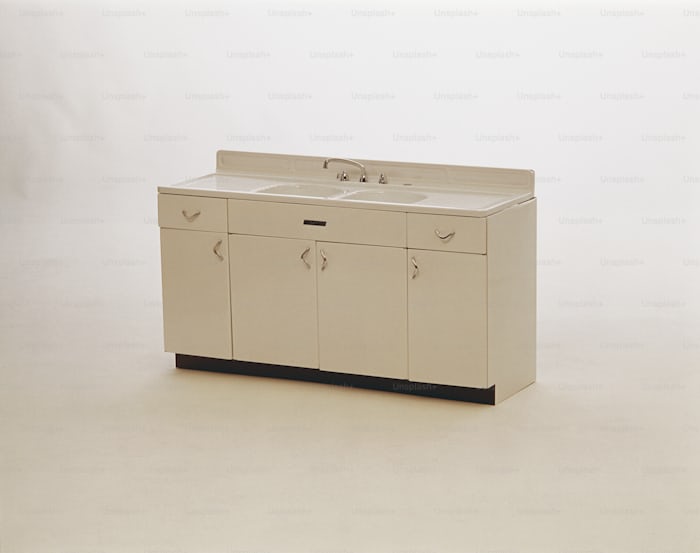In the last decade, Online Boutiques have revolutionized the fashion industry, offering consumers a more personalized and unique shopping experience compared to large, mainstream retailers. These smaller, often niche-focused, digital stores cater to customers seeking distinctive styles, limited-edition items, and boutique-quality apparel. With the growth of e-commerce, social media influence, and changing consumer preferences, online boutiques have surged in popularity, providing an alternative to fast fashion and mass-produced clothing. In this article, we’ll explore the factors driving the success of online boutiques, their appeal, and how they’re transforming the fashion landscape.
The Appeal of Online Boutiques
One of the primary reasons for the increasing popularity of online boutiques is their curated selections. Unlike large retailers, which often carry a broad range of clothing items with an emphasis on volume, online boutiques tend to focus on a specific style, demographic, or trend. For example, a boutique may specialize in bohemian fashion, vintage-inspired clothing, or eco-friendly and sustainable materials. This targeted approach resonates with consumers looking for something special, allowing them to discover pieces that reflect their personal style.
Another significant advantage is the exclusive nature of boutique offerings. Many online boutiques limit the quantity of their products, which makes their inventory feel more unique and exclusive. This scarcity model taps into the customer’s desire to own something that few others have, creating a sense of urgency and value. By offering limited-run items, boutiques can also keep their collections fresh and aligned with seasonal trends, encouraging repeat visits from loyal customers.
Beyond exclusivity, personalized customer service sets online boutiques apart. Smaller boutique businesses can often provide a more intimate shopping experience, offering customized recommendations, personal shopping assistance, and even direct communication with boutique owners. This human connection is a stark contrast to the often impersonal nature of larger e-commerce platforms, where customer interactions are automated. By cultivating relationships with their customers, online boutiques can foster loyalty and trust, further strengthening their brand image.
How Social Media Drives Online Boutique Success
The success of online boutiques is closely tied to the rise of social media platforms like Instagram, TikTok, and Pinterest. These visual-centric platforms have become essential tools for fashion marketing, providing boutiques with a powerful way to showcase their products. Instagram, in particular, has become a go-to platform for boutique owners to share new arrivals, styling tips, and behind-the-scenes glimpses of their business.
Through influencer partnerships and targeted ads, online boutiques can reach a broader audience, allowing them to compete with larger retailers without the need for massive advertising budgets. Collaborating with influencers who align with their brand ethos can significantly increase a boutique’s visibility, bringing in new customers who trust the influencer’s recommendations. Micro-influencers, in particular, have become valuable partners for boutiques as they have highly engaged and niche followings, which can translate into higher conversion rates.
Additionally, user-generated content (UGC) has become a vital marketing tool for online boutiques. When customers post photos of themselves wearing boutique pieces, it creates authentic, organic promotion for the brand. This type of content can lead to a snowball effect, where more customers share their purchases, building the boutique’s reputation through word-of-mouth and social proof.
Online Boutiques vs. Fast Fashion
While fast fashion giants like Zara and H&M continue to dominate the fashion industry, online boutiques offer a stark contrast to the rapid-production, low-cost model. Boutique fashion tends to emphasize quality over quantity, with many boutiques sourcing clothing from independent designers, small-batch manufacturers, or ethical and sustainable brands. This focus on craftsmanship and ethical production appeals to a growing number of consumers who are more conscious of where their clothing comes from and how it’s made.
Online boutiques often serve as an antidote to the negative environmental and social impacts of fast fashion. They may emphasize slow fashion, promoting pieces that are meant to last for years rather than just a season. Many consumers are drawn to this approach as they seek to build more intentional, sustainable wardrobes. Online boutiques that highlight their commitment to eco-friendly practices or fair trade can tap into this conscious consumer movement, offering an alternative to mass-market fashion.
Moreover, online boutiques are well-positioned to respond to shifts in consumer behavior more quickly than large retailers. Fast fashion brands typically produce items in massive quantities, but this can lead to overproduction and waste if a particular style doesn’t sell as expected. In contrast, boutiques tend to stock smaller quantities, which allows them to adapt to changes in trends and customer preferences more fluidly. This agility is a significant competitive advantage, especially in today’s fashion landscape, where trends are constantly evolving.
The Future of Online Boutiques

Looking ahead, it’s clear that online boutiques are here to stay. The e-commerce fashion market continues to grow, and consumers are increasingly seeking out more personalized and unique shopping experiences. As technology advances, we can expect to see online boutiques incorporating more virtual shopping tools, such as augmented reality (AR) fitting rooms, personalized AI-driven recommendations, and virtual fashion shows. These technologies will help enhance the customer experience, making online shopping more immersive and tailored to individual preferences.
Additionally, the trend towards sustainability and ethical fashion is likely to continue shaping the boutique landscape. As consumers become more environmentally conscious, boutiques that prioritize ethical production and sustainable materials will stand out. We may also see an increase in second-hand and upcycled clothing boutiques, which cater to consumers interested in reducing their fashion footprint.
Furthermore, online boutiques have the potential to disrupt not just the fashion industry but also the luxury market. As more consumers seek out designer accessories and high-end pieces from niche, independent designers, luxury online boutiques are likely to gain traction. These boutiques, which offer both exclusivity and direct access to luxury products, can appeal to high-end shoppers who value craftsmanship and limited-edition items.
In conclusion, online boutiques have carved out a unique space in the fashion world by offering curated selections, personalized service, and an exclusive shopping experience. Their ability to adapt to trends, leverage social media, and respond to the growing demand for ethical fashion has cemented their place in the future of retail. Whether you’re looking for trendy clothing, luxury fashion shopping, or boutique apparel that reflects your individual style, the online boutique scene offers a wealth of choices tailored to the modern, discerning shopper.






Good day! Do you know if they make any plugins to assist
with SEO? I’m trying to get my blog to rank for some targeted keywords but
I’m not seeing very good success. If you know of any please share.
Kudos! You can read similar text here: Blankets
The last identified picture of Joseph Merrick (circa 1890).
sugar Defender reviews Discovering Sugar Defender
has been a game-changer for me, as I’ve always been vigilant regarding handling my blood sugar
level degrees. With this supplement, I really feel equipped to take charge of my health, and my most current
clinical examinations have actually reflected a considerable
turnaround. Having a reliable ally in my corner supplies me
with a complacency and peace of mind, and I’m deeply
grateful for the profound difference Sugar Defender has made in my
well-being. sugar defender